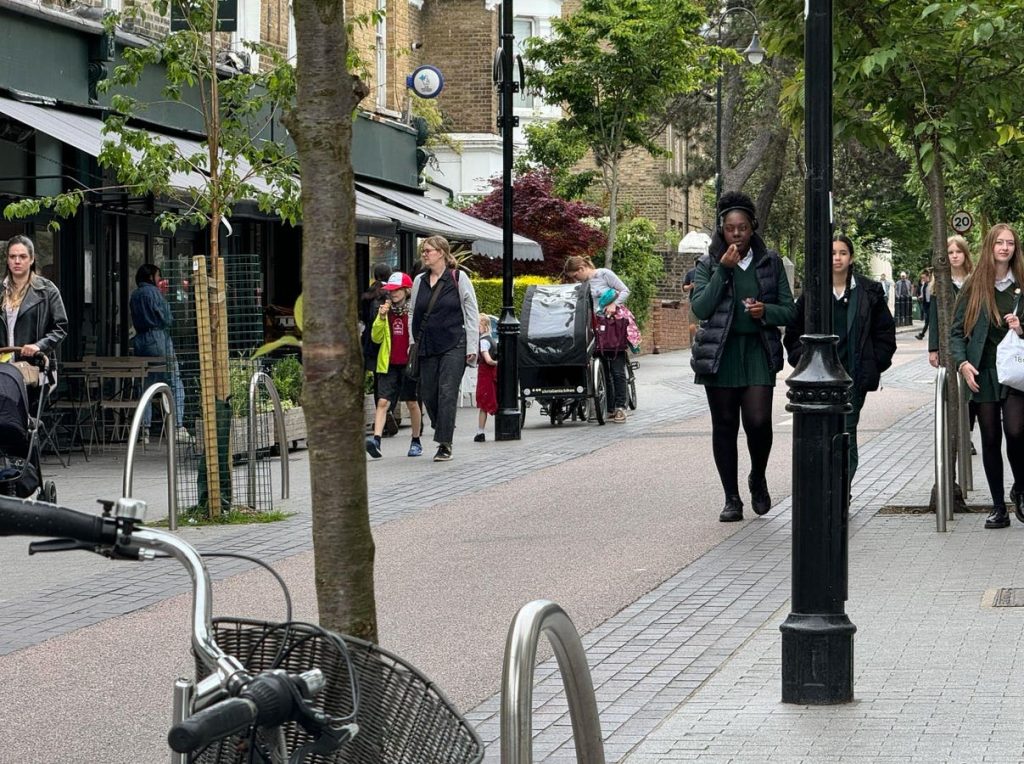The Mini-Holland cycling and walking scheme in Walthamstow, a neighborhood in outer London, recently celebrated its 10th anniversary. The scheme, which was initially controversial, has been highly successful in promoting active travel and creating a safer environment for pedestrians and cyclists. The celebration included tours of the borough for transport professionals and a reception at the William Morris gallery.
The scheme, which received funding from City Hall in 2014, has led to significant improvements in the area. Pavement cafes, pubs, and restaurants have thrived since the implementation of the scheme, contradicting initial concerns raised by protesters. A recent survey found that 54% of residents feel that the makeover has made it safer to walk and cycle, while an earlier survey showed that 84% believed the scheme had improved life in the borough.
London Mayor Sadiq Khan, who was unable to attend the celebration due to a prior engagement, sent his walking and cycling commissioner, Will Norman, in his place. Norman praised the Walthamstow scheme as a model for the changes needed worldwide to prioritize walking and cycling over car travel. The focus on creating a network of traffic-calmed backstreet routes and main road cycleways has been successful in encouraging more Londoners to walk and cycle.
Despite facing opposition and threats to his safety, deputy council leader Clyde Loakes remained committed to the Mini-Holland program. The council has built 34 miles of cycleways, 22 traffic-calmed school streets, and modified 180 road crossings to improve safety for pedestrians and cyclists. The significant investment in cycling infrastructure has resulted in cleaner air, safer streets, and closer-knit communities in Walthamstow.
The impact of the Mini-Holland scheme goes beyond infrastructure improvements. Researchers at King’s College predicted that children in the borough would live longer due to cleaner air resulting from the scheme. Cllr Grace Williams, the Leader of Waltham Forest Council, emphasized the importance of political will and determination in implementing the program, stating that progress on active travel initiatives is crucial for the future.
The success of the Mini-Holland scheme in Walthamstow serves as a model for cities around the world looking to prioritize walking and cycling over car travel. The multi-award-winning program has not only improved safety and accessibility for pedestrians and cyclists but has also had positive impacts on public health, air quality, and congestion. With continued investment and commitment, Waltham Forest Council aims to build on the achievements of the last decade and create a more sustainable and vibrant community for residents and visitors alike.













